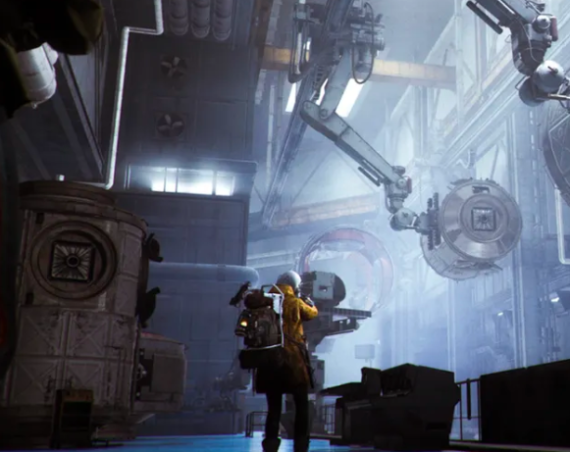
EA Buyers Anticipate AI-Driven Cost Reduction Amidst $20 Billion Debt
Electronic Arts (EA), the publisher behind popular franchises such as Battlefield, The Sims, and Dragon Age, is currently undergoing a significant acquisition process valued at $55 billion. This deal, however, involves the company incurring a considerable $20 billion debt load, compelling investors and new buyers to look toward innovative solutions like artificial intelligence (AI) to enhance operational efficiencies and increase profitability.
AI as a Strategic Tool for Operational Efficiency
According to a report from The Financial Times, investors involved in EA’s buyout are optimistic that AI-powered technologies can significantly reduce the company’s operating costs. Although the exact applications of AI in this context remain unspecified, the underlying expectation is that AI can serve as a vital mechanism to manage the heavy financial burden by streamlining operations.
Potential AI Applications in the Gaming Industry
While it is not clear whether AI will be deeply integrated into the game development pipeline, some plausible uses include:
- Automated Quality Assurance: Using AI to detect bugs, predict problem areas, and automate repetitive testing tasks.
- Content Generation: Leveraging generative AI to create game assets, environments, or narrative elements, accelerating production timelines.
- Player Engagement Analytics: Applying AI to analyze player behavior for personalized experiences and optimized content delivery.
- Operational Support: Streamlining customer support services through AI chatbots and improving marketing strategies with AI-driven data insights.
Industry trends suggest these AI applications can lead to significant cost reductions. For example, a McKinsey study highlights that AI in media and entertainment, specifically gaming, can reduce labor costs by up to 30% and enhance revenue through personalized content delivery.
Balancing Innovation and Concerns
While EA’s leadership has embraced AI technology, acknowledging it as central to their creative journey—as CEO Andrew Wilson stated in 2024—there are significant concerns from fans and industry watchers. The primary apprehensions include:
- Impact on Creativity: Fear that an overreliance on AI may diminish human creativity that makes games unique and emotionally resonant.
- Job Displacement: The possibility that AI-driven automation might lead to layoffs in development, support, and other sectors within EA. This concern is reflected across the tech and entertainment industries, where AI advancements have already contributed to workforce reductions.
- Environmental Costs: The energy consumption of large-scale AI models raises sustainability questions, contrasting with efforts to reduce the environmental footprint.
These concerns are underscored by previous industry layoffs linked to AI adoption. For instance, Microsoft reportedly laid off 9,000 employees amid increasing investment in AI, reflecting a broader trend in tech companies adapting business models for AI integration (Source: CNBC).
Fan Reactions and Franchise Future
The substantial financial restructuring and AI-driven operational changes have sparked unease among dedicated fans of EA’s game franchises.
- Mass Effect Concerns: Fans have expressed anxiety about whether beloved series like Mass Effect will receive less attention or altered quality under the new management priorities.
- General Industry Sentiment: Change often brings uncertainty; however, no concrete announcements have been made indicating franchise discontinuations or radical shifts in creative direction.
It remains to be seen how EA balances the drive for profitability with maintaining the quality and innovation that has sustained its franchises’ loyal fanbases.
Looking Ahead: The Acquisition Timeline
The acquisition deal is projected to finalize in the first quarter of fiscal year 2027, pending regulatory approvals and shareholder consent. EA’s leadership continues to emphasize a commitment to operational rigor and creativity as key pillars moving forward. CEO Andrew Wilson recently reaffirmed this vision, describing the buyout as “a new era of opportunity,” aiming to accelerate innovation and inspire players worldwide.
Summary: Key Takeaways
- EA’s $55 billion acquisition involves $20 billion in debt financing, prompting operational cost-cutting targets.
- Investors are optimistic about leveraging AI to reduce costs and improve profitability.
- Specific AI applications may include quality assurance, content generation, and player analytics.
- Concerns persist over AI’s impact on creativity, job security, and environmental footprint.
- EA’s leadership commits to balancing innovation and operational excellence during the transition period.
Conclusion
The integration of artificial intelligence represents both a promising avenue for operational efficiency and a source of notable concerns within the gaming industry. EA’s forthcoming transition signals a pivotal moment where technology, finance, and creativity converge. Monitoring how AI will shape EA’s future operational strategies—and the broader gaming landscape—will be essential for industry stakeholders and fans alike.
As the $55 billion acquisition progresses, the effective application of AI could offer critical support to managing the significant $20 billion debt and positioning EA as a forward-looking leader in the entertainment sector.


